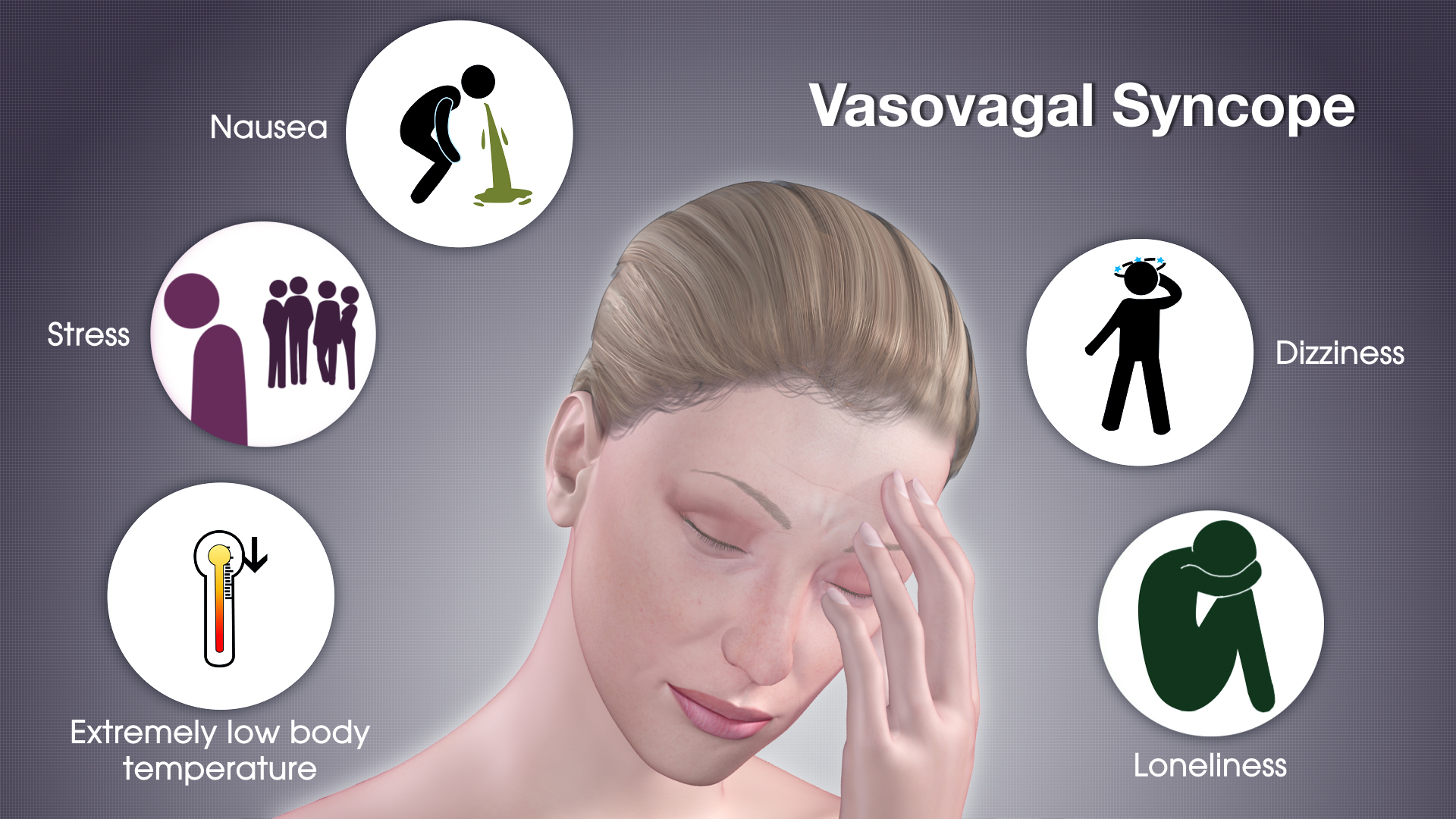Vasovagal syncope is losing consciousness because of a sudden drop in heart rate and blood pressure. Generally, this happens when the body overreacts for certain emotions. The major emotions that are observed to be responsible for fainting can be fear, a sudden change in emotion or in some cases when the person sees blood or any accident (mostly of near and dear ones). Other medical terms for this disease are neuro cardiogenic syncope or reflex syncope.

Symptoms
People usually don’t feel any symptom of vasovagal syncope, unless they faint. Some of the observed symptoms of vasovagal syncope are:
- Looking pale or grey
- Nausea
- Weakness
- Over-sweating or feeling warm
- Dizziness or yawning
- Vision getting blurred or tunnel vision (narrowed vision concentrated only in the central area)
Those who experience the above-mentioned symptoms are usually recommended by the physicians all over the world to lie down immediately so that their blood can reach their brain and may prevent fainting.
People who faint and pass out will usually feel:
- Exhausted
- Lightheaded
- Nauseated
People around them can see the patient’s pupil’s dilated, jerky abnormal movements and can easily observe that patients having a slow, weak pulse.
Causes
Heartbeats of humans are controlled by some specific nerves, which also ensure the regulation of blood pressure. It is achieved by controlling the width of the blood vessels and ensures the supply of oxygenated blood to the brain. While people experience fear or are frightened of something, these signals get mixed up with an increase in the width of the blood vessels, resulting in low blood pressure. As the blood pressure drops, the heartbeat slows down and the lack of supply of oxygenated blood to the brain arises which causes fainting.
Common reasons- While fright and fear are the most obvious reasons, standing after sitting / bending / lying down for a long time, standing for long periods, severe pain, intense coughing, rigorous physical activity and getting exhausted too much are also some known causes for vasovagal syncope.
Other health conditions- Some diseases like diabetes, Parkinson’s disease or heart diseases might also trigger fainting.
Medications- People undergoing medications that have antidepressants, or blood pressure altering drugs, are also likely to experience fainting.
Treatment
Generally, a physician initially checks out medical history and examines your blood pressure in different positions like sitting, standing, or lying down. If necessary, he/she will also prescribe you to take an ECG or EKG for evaluating your heartbeat.
Doctors around the world recommend some of the following tests:
Tilt table test: In this test, the doctor evaluates the patient’s heartbeat in different positions.
Portable heart monitor: Through this tracking device, continuous monitoring of heartbeat will be possible.
Echocardiogram: By using sound waves, images of the patient’s heart and blood flow can be traced.
Exercise stress test: Heartbeat is monitored while the patient does exercises like walking or running.
It is seen that physicians usually don’t call for treatments unless the episodes become frequent. Some of them even prescribe medications but medicines are always recommended only after proper diagnosis and looking up at the patient’s medical history.
It might not be possible to completely prevent the disease. However, you can work on finding your triggers and start avoiding them. As per doctors, it’s better to sit down and put your head between your knees, or lie down and lift your legs, if possible. This will replenish the oxygenated blood flow to your brain.
Disclaimer: The information in no way constitutes, or should be construed as medical advice. Nor is the above article an endorsement of any research findings discussed in the article an endorsement for any of the source publications.








